The fantastic cranes of Job Isles
Posted by Chris Graham on 26th June 2023
Derek Rayner, delves into the family archives of Job Isles, principal of one of the lesser-known crane-manufacturing firms in Yorkshire.
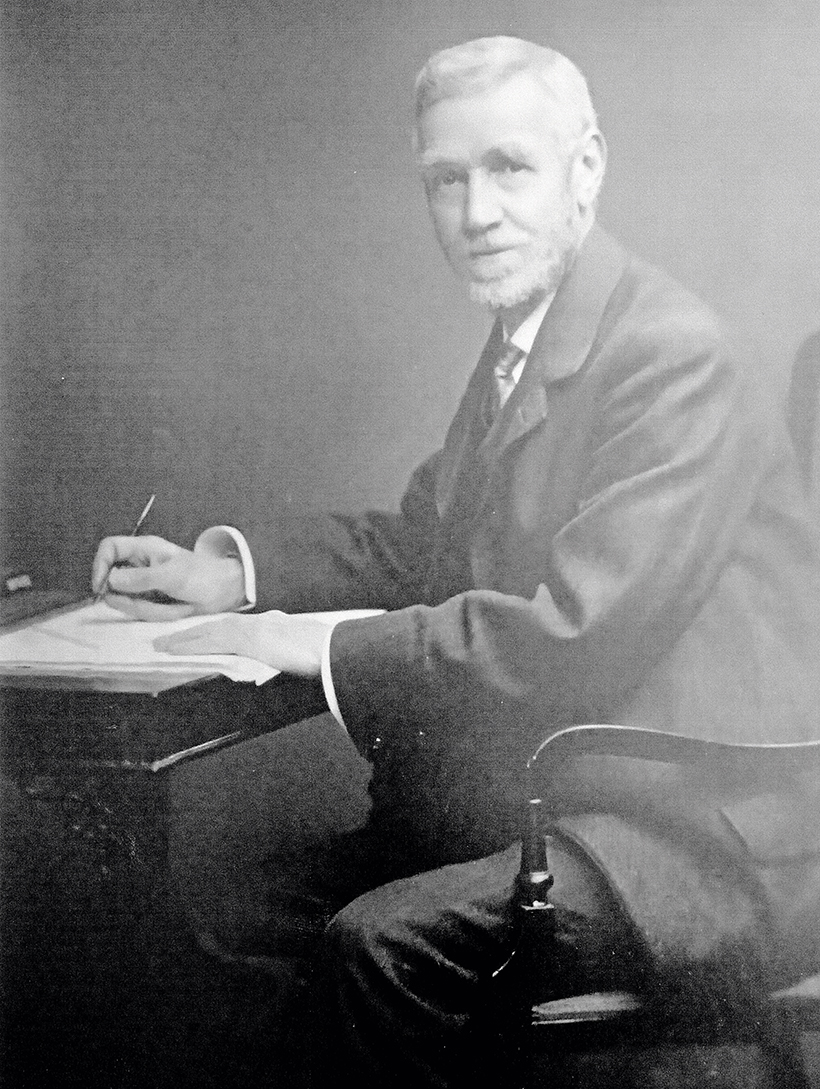
This photograph of Job Isles was taken in 1912 to celebrate his 70th birthday. It was presented to him by the shareholders of the business on November 1st, 1912.
Job Isles was born in 1842 at Farsley, between Leeds and Bradford, the son of a cloth weaver and initially followed in his father’s footsteps. In the early 1860s he had left the woollen trade and took up employment as an office clerk with Thomas Smith, crane manufacturers at nearby Rodley. He married in 1865 and some four years later, with a partner called Thomas Whitham, established a mechanical engineering business – trading as Isles & Whitham – at Prospect Works, Robin Lane, Pudsey, making steam cranes and lifting machinery.
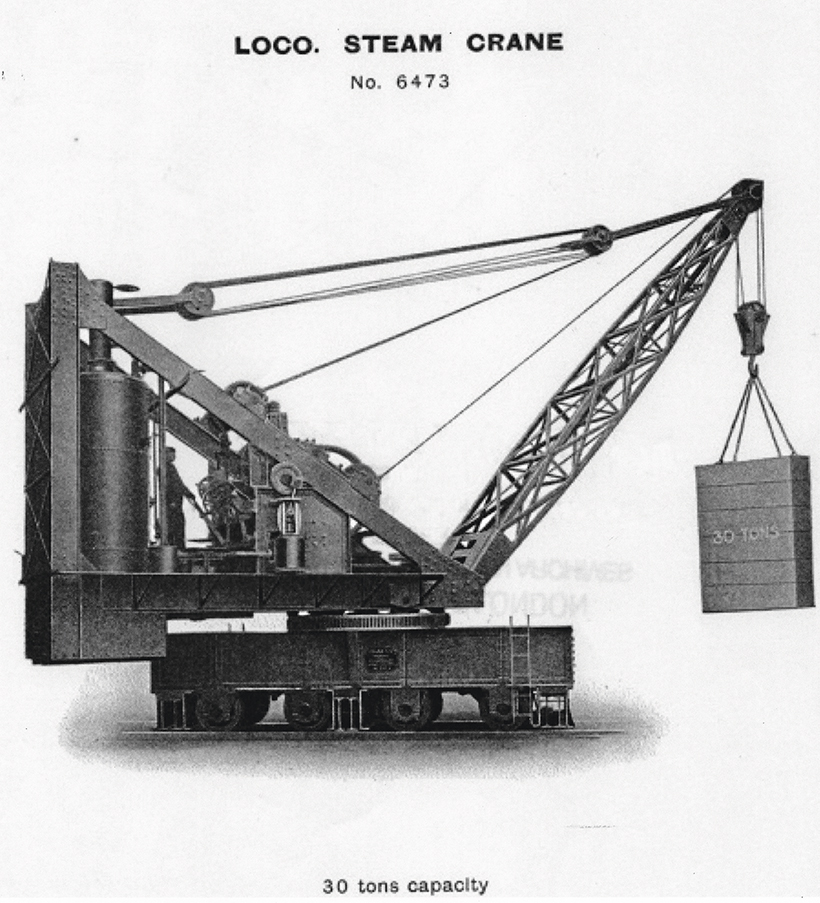
An Isles 30-ton loco steam crane.
In 1870, at the age of 27, he extended the partnership to include Benjamin Johnson and, a couple of years later, he purchased land from William Firth in Stanningley, now a district of Pudsey and approximately equidistant between Leeds and Bradford, and built Prospect Foundry on Harrisons Avenue. At the time of the 1881 census, Job was then aged 39 and was prospering to the extent that he ‘bought out’ his two partners.
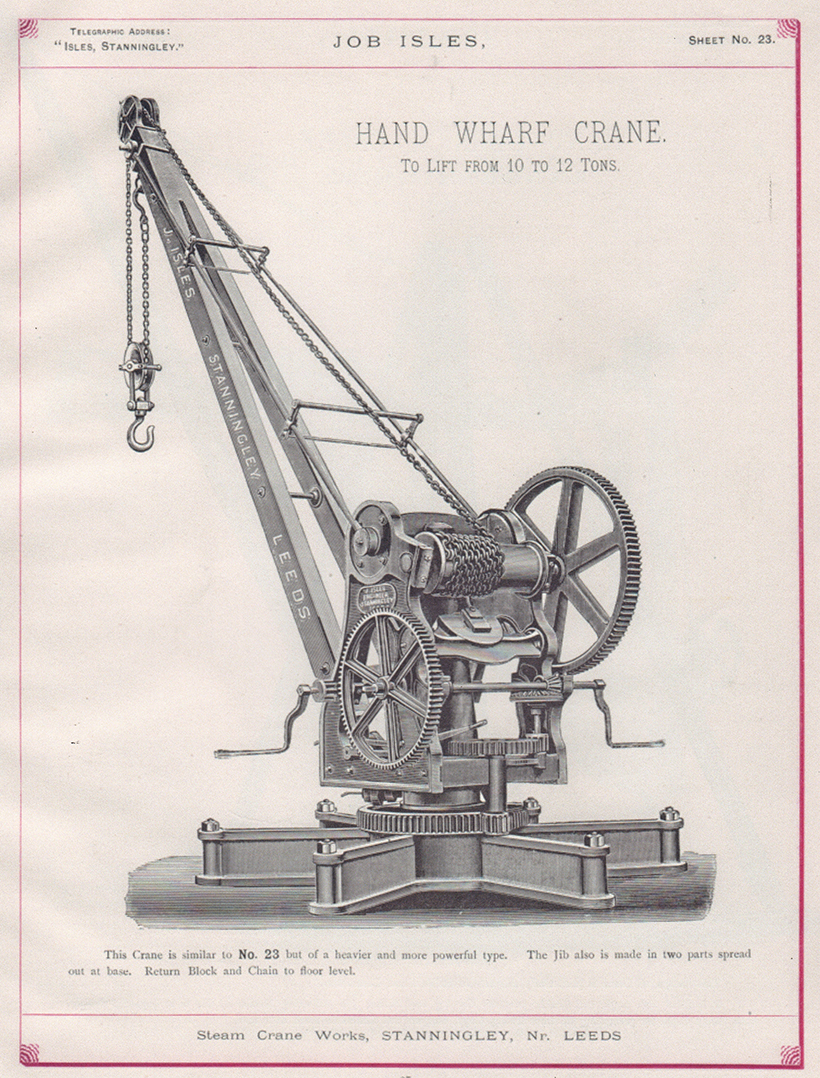
A catalogue image of a hand wharf crane of 12-ton capacity.
Job was about 50 years old when he bought his residence, Prospect House, in Back Lane, Farsley and, on March 23rd, 1892, he obtained a mortgage to enlarge Prospect Foundry. Expanding his interests somewhat, later in 1892, he was in a position to provide funds to Mr David Pickard which enabled this latter gentleman to purchase the Leeds & Bradford Boiler Company. The following year, Isles Limited was incorporated with a capital of £20,000.
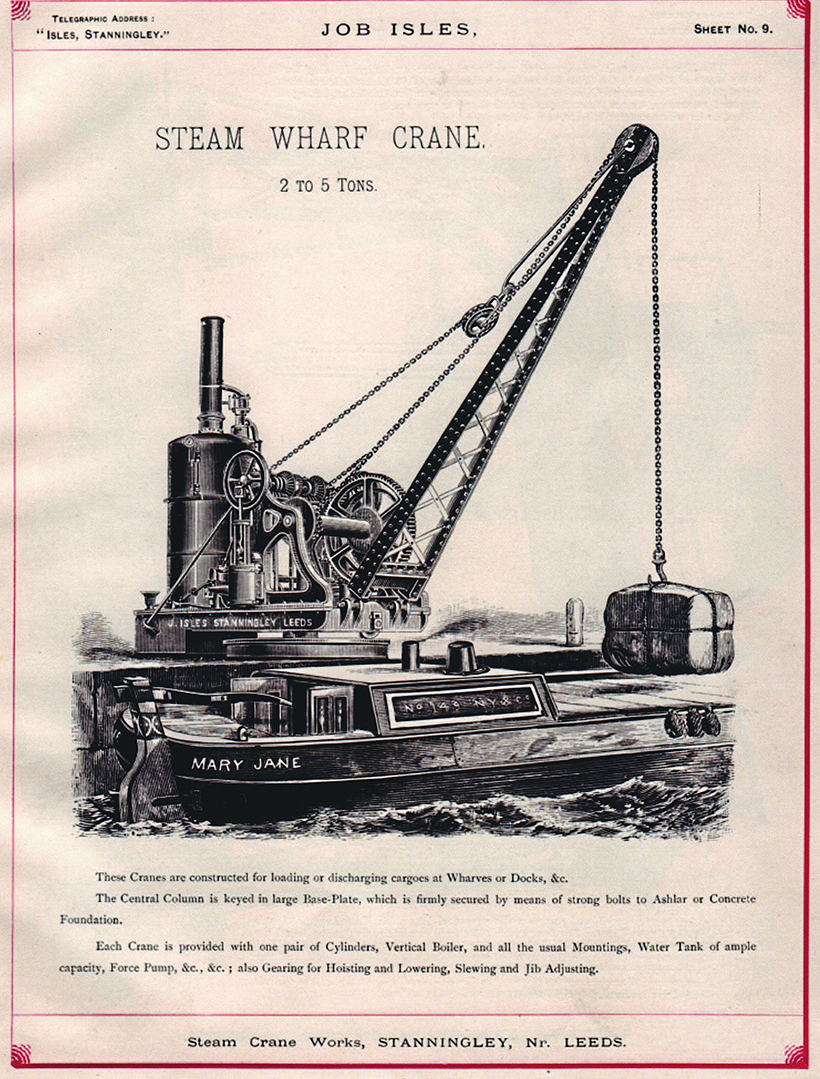
A catalogue image of a steam-powered wharf crane, 2- to 5-ton capacity.
In 1899, Job, then age 56, founded the Farsley Liberal Club by laying a stone on the front right-hand wall of the building, still there to be seen today. He remained the first president of the club for some 15 years. Quite coincidentally, for a long time it was in this building where the Friends of Pudsey Roller held their regular and very successful fund-raising Pie & Pea Suppers, with the aim of generating funds for the ex-Pudsey Park Fowler roller’s restoration.
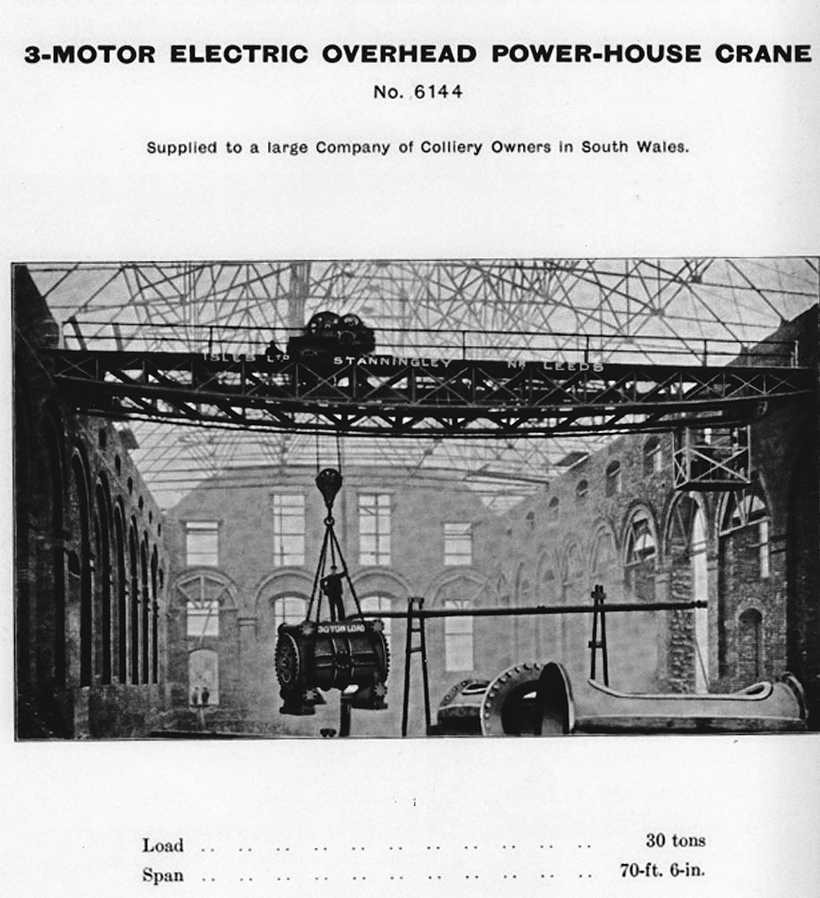
An electric overhead crane of 30-ton capacity supplied to a Welsh colliery.
During World War 1, the Isles Ltd factory turned its hand to war work and, on a special production line known as the Bomb Bay that was staffed by women, thousands of Stokes mortar bombs were manufactured.
On September 22nd, 1919, Job Isles died at Prospect House, five weeks before his 77th birthday. His third wife, Gertrude, then aged 37, subsequently became chairman of the company. During the long periods of his three marriages, Job had fathered 14 children, although several of them died in infancy.
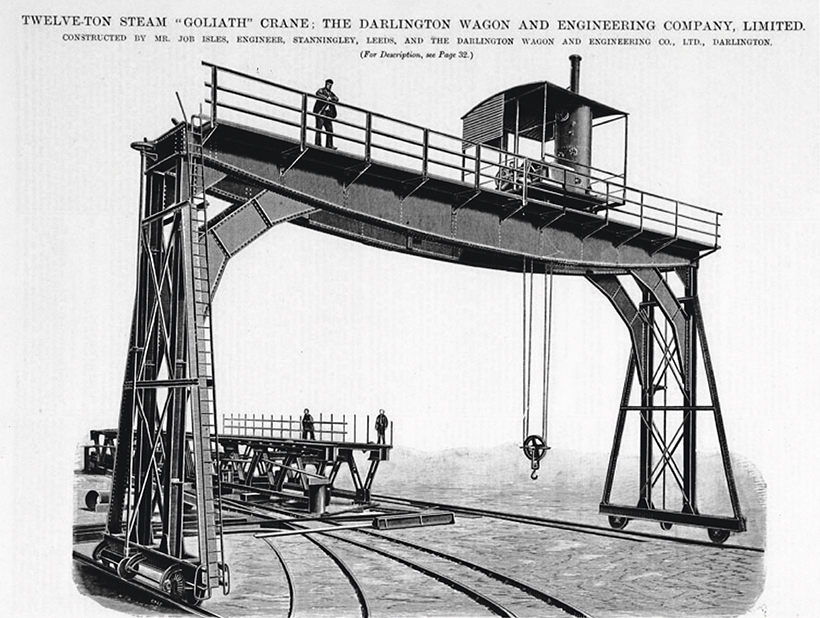
This 12-ton overhead ‘Goliath’ steam crane was for the Darlington Wagon & Engineering Company Ltd.
By 1928, Isles Ltd had been crane-makers for almost 60 years and, in that year, Leyland Motors appointed the company as service agents/spare parts stockists, initially for the Leeds area and then, in 1936, for the whole of Yorkshire. At one time, Isles Ltd also built chassis/bodies for Leyland commercial vehicles.
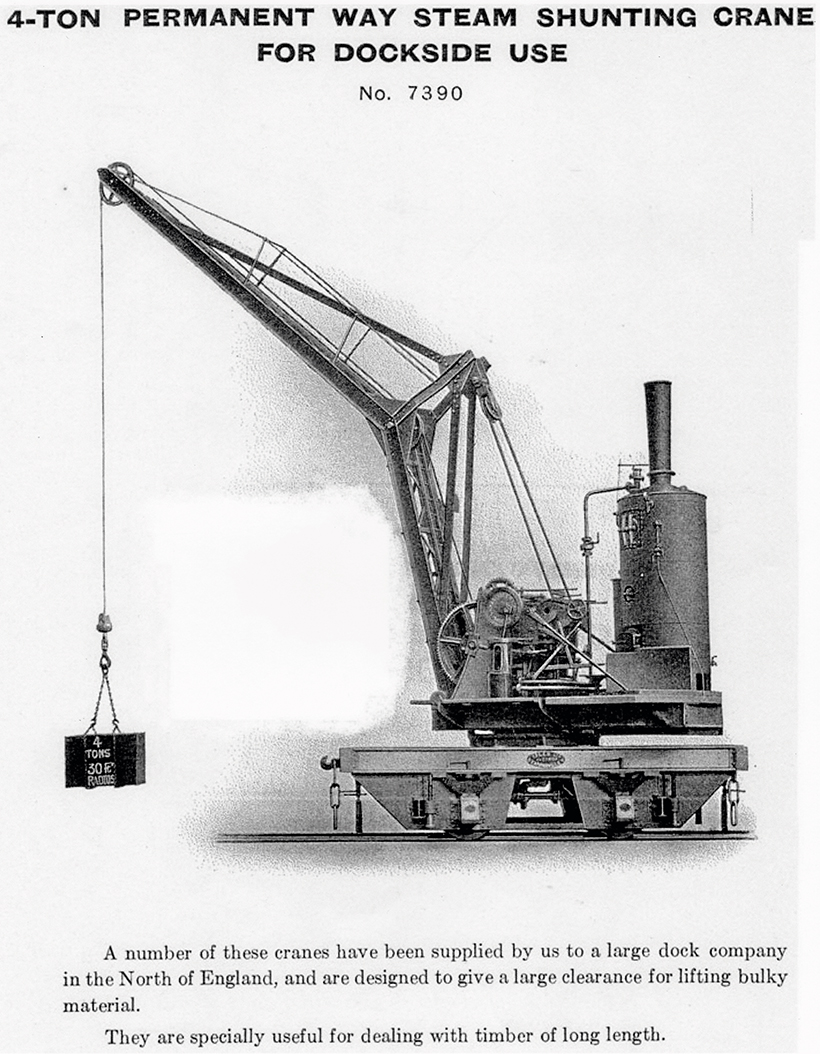
A relatively small 4-ton self-propelled steam crane for dockside use.
During WW2, on May 24th, 1943, Gertrude Isles laid a foundation stone at the Prospect Works of Isles Limited at the junction of Harrisons Avenue and Leeds and Bradford Road, in Stanningley, to mark an extension of the premises. This was also 50 years after Isles had been formed as a limited company and, at this time, the company had 150 employees. In March 2013 this stone, together with one laid by JB Keighley, the managing director of the company, was in the back garden of the previous home of John Isles at Pool-in-Wharfedale.
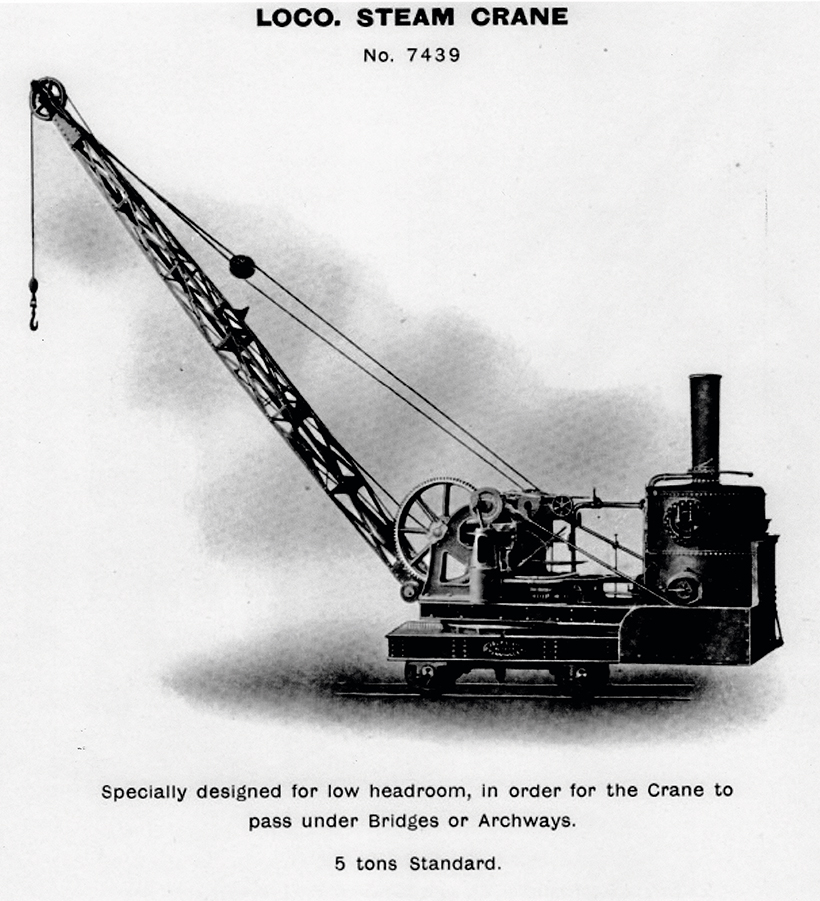
With a shorter-than-usual vertical boiler, this 5-ton capacity crane was designed such that it could negotiate low bridges with its jib almost in the horizontal position.
In 1954, John Isles returned from representing British Leyland in Victoria, Australia, whereupon he became joint managing director of Isles Limited with his brother, Aubrey. In October 1960, Philip Robinson presented Gertrude Isles with a portrait of herself to mark 41 years as the chairman of Isles Ltd. She died three years later, age 80, in a Bradford hospital.
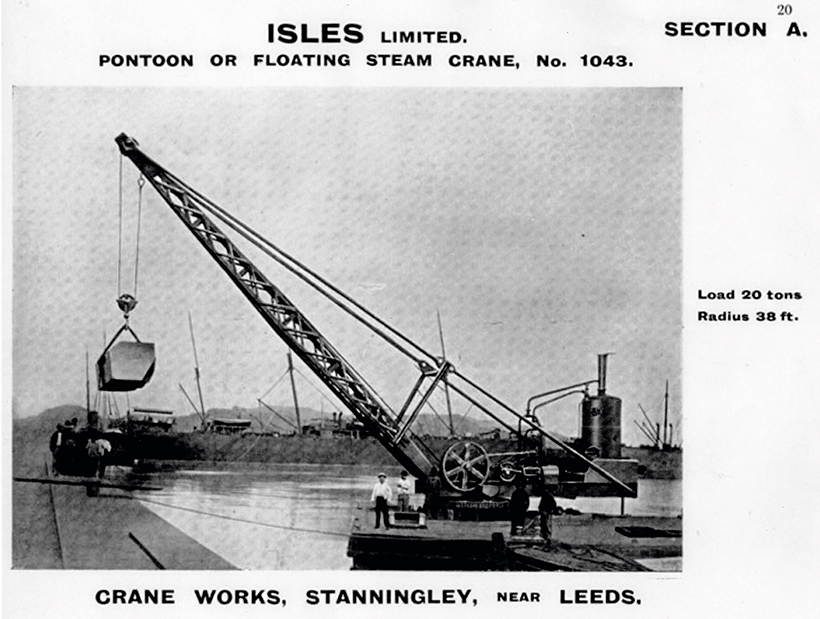
A 20-ton steam crane for use on a pontoon floating on the water.
In the late 1960s, Isles Limited relocated to newly-built premises on the Grangefield Industrial Estate in Pudsey and, shortly afterwards, the business which had, since the 1950s included a car sales and repair garage on Bradford Road, Stanningley, was acquired by the Hargreaves Group of companies. In 1980, John Isles retired but continued as a part-time consultant for several years. The business carried on trading as Isles of Stanningley until, via a further acquisition, the name disappeared to be replaced by Chatfields, under which banner it continues to operate from Grangefield to this day.
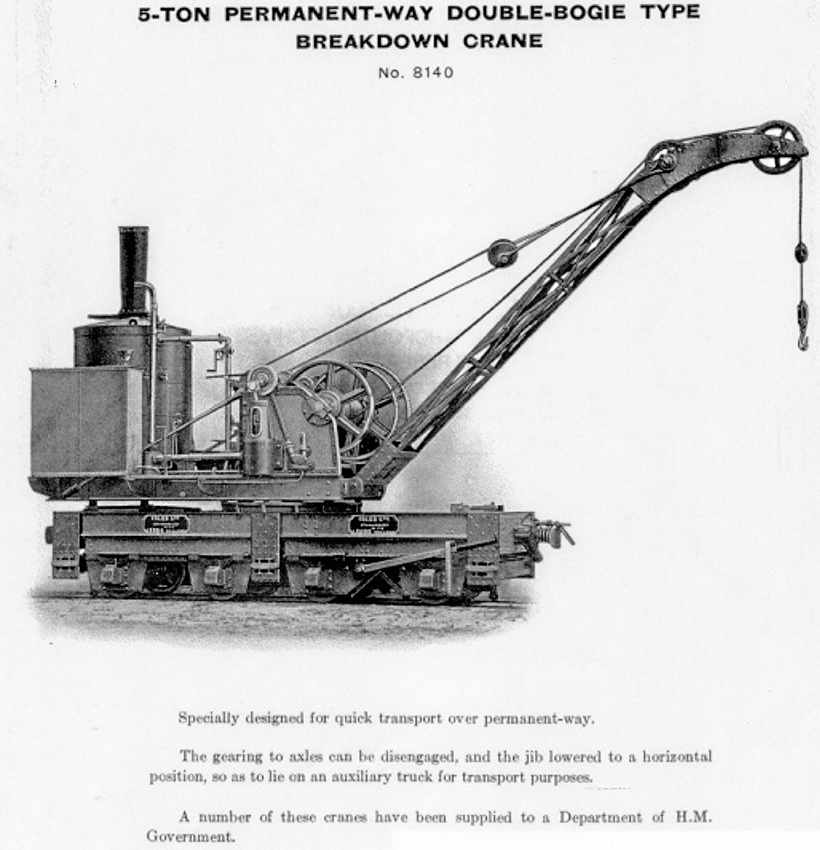
A double-bogie 5-ton crane for use on railway trackwork.
Over the large number of years that Isles produced cranes, the firm’s range included many varieties for a considerable number of purposes. These included hand cranes, dockside cranes, Goliath cranes, cranes for wharves, railway breakdown cranes and pontoon floating cranes. These were not only of the steam variety, but also the firm moved on to electric-powered versions when the technology enabled them to do so.
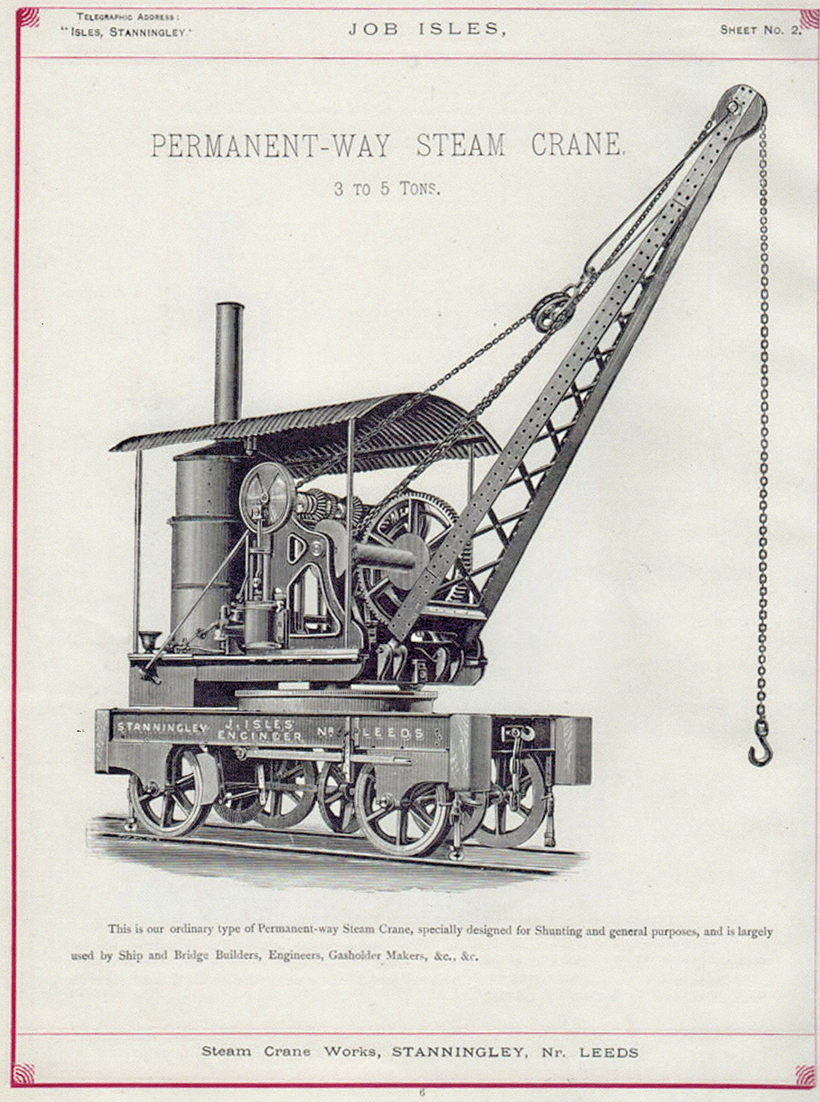
An early design of steam crane for railway use – 3- to 5-ton capacity.
In addition, having a foundry, the firm also produced such items as street furniture for local use, including lamp posts, five of which are known to still exist. Two are erected at the homes of Job’s descendants, while two also stand proud in Farsley – one at his former home, Prospect House, and the other occupies a prominent position on Town Street.
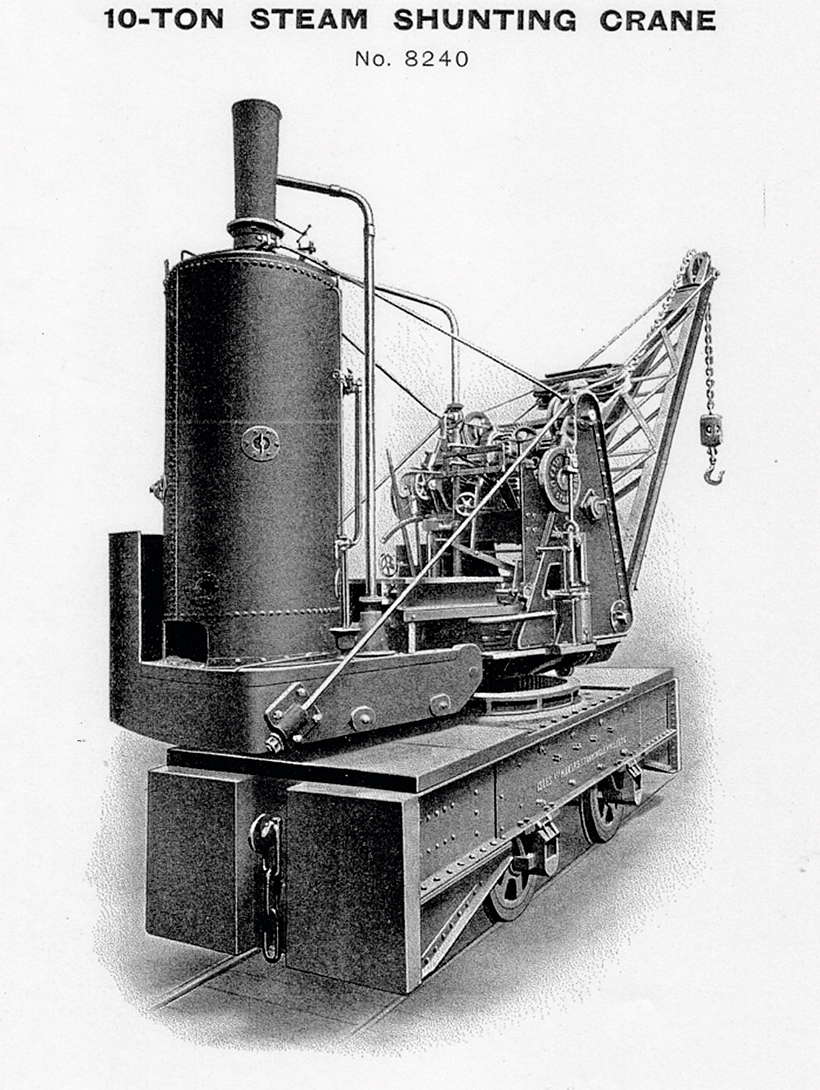
Dorman Long & Co. Ltd was the customer for two heavy-duty 10-ton cranes of this type. One was destined for its Britannia Works in Middlesborough, while the other was supplied to the Redcar works.
In the present-day era of interest in past technology, it’s fitting that one Isles crane – numbered 173 and manufactured in 1886 – is in preservation in Leeds, where it can be seen from the adjacent main road at the 1758 Middleton Railway in Hunslet. Another is known to exist in the West Indies, in St Kitts. Sadly, though, this one isn’t in what might be described as ‘working order’.
Grateful thanks to Jonathan Isles and David Wood, both being grandsons of Job Isles, for permission to use information in their possession during the preparation of this article.
This feature comes from a recent issue of Old Glory, and you can get a money-saving subscription to this magazine simply by clicking HERE
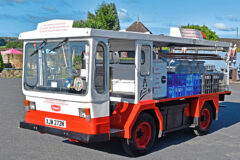
Previous Post
Beautifully-restored electric-powered milk float
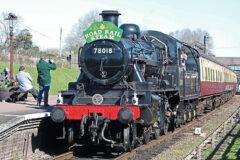
Next Post
A brilliant Easter Vintage Festival!



